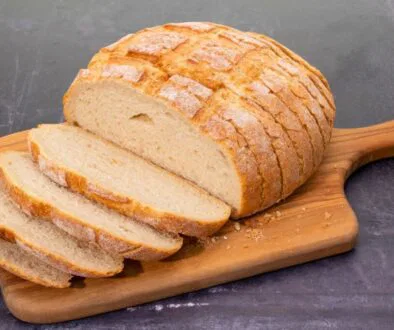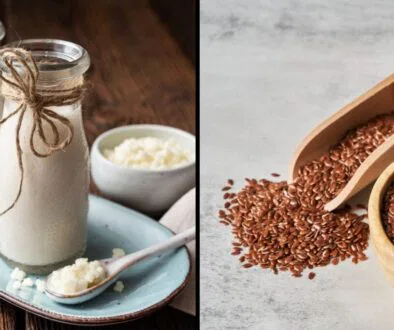Oats Vs Quinoa: Which Is Better For Your Health?
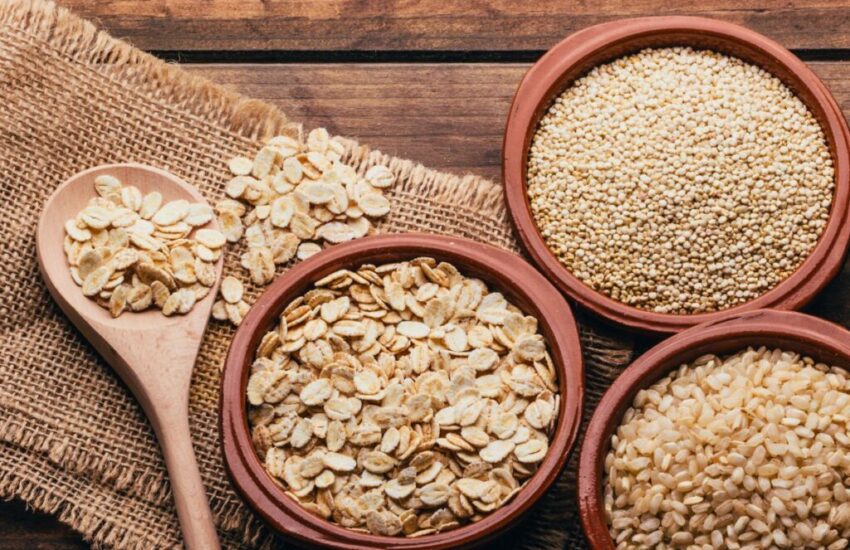
Published May 21, 2025
Are you struggling to decide between oats and quinoa for your next breakfast? You’re not alone. These two superfoods are packed with nutrients, but knowing which suits your goals can feel overwhelming. Whether you’re looking to boost protein, manage weight, or mix up your meals, understanding the key differences in the oats vs quinoa debate is essential.
In this article, we’ll explore everything you need to know about these two superfoods, oats vs quinoa. Let’s compare their benefits to help you decide which is better for your diet and lifestyle.
Understanding Oats And Quinoa
Oats and quinoa are popular whole foods with excellent nutrition and health benefits. Oats are a versatile cereal grain and a breakfast favorite. They can be enjoyed as oatmeal, smoothies, or baked into cookies and granola bars. Oats are high in fiber, especially beta-glucan, which supports heart health. They also help lower cholesterol, making them a healthy choice for any diet.
Quinoa is a nutrient-rich seed often called a pseudo-cereal. Its grain-like texture works well in salads, bowls, and as a rice substitute. Quinoa is a complete protein that contains all nine essential amino acids, making it an excellent option for including more plant-based protein in your diet.
By comparing their taste, texture, and nutrition, you can make smarter diet choices. Both foods are versatile, healthy, and easy to include in any meal plan.
Nutritional Comparison
While oats and quinoa are excellent sources of essential nutrients, their composition and benefits vary. Here’s how they measure up per 100 grams of raw product:
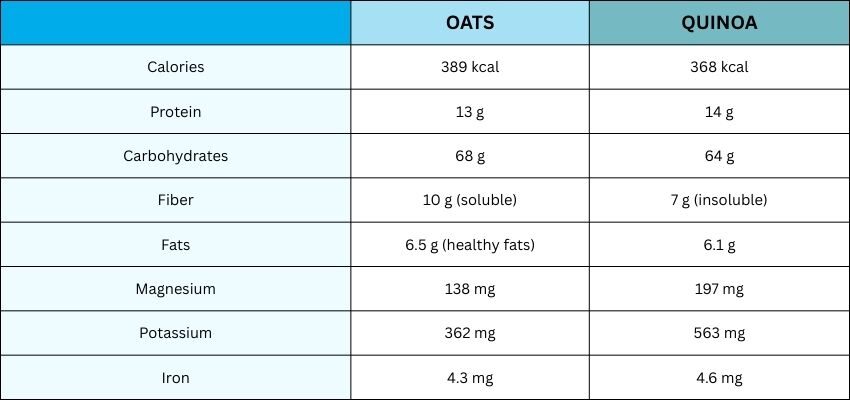
Calories and Protein: Quinoa edges out oats with slightly fewer calories and a higher protein content. It provides all essential amino acids as a complete protein, making it an excellent choice for those following plant-based diets.
Carbohydrates and Fiber: Oats deliver more carbohydrates and are loaded with soluble fiber, particularly beta-glucan, which lowers cholesterol and stabilizes blood sugar levels. On the other hand, quinoa is rich in insoluble fiber, which supports digestion and may reduce the risk of diabetes.
Fats and Minerals: Quinoa and oats contain healthy fats, including omega-3 and omega-6 fatty acids. However, quinoa has a higher mineral content, particularly magnesium and potassium, which are crucial for nerve and muscle health.
Oats excel as a rich source of soluble fiber, while quinoa stands out for its high protein content and abundance of essential minerals. Ultimately, selecting between them will depend on your nutritional priorities.
Health Benefits
Oats and quinoa are two superfoods packed with essential nutrients and health benefits. These versatile grains offer powerful advantages for overall well-being, from improving heart health and managing blood sugar to boosting energy and supporting digestion. Here’s a closer look at how they can enhance your health:
Oats
- Promotes heart health. Oats are packed with beta-glucan, a soluble fiber known for lowering LDL (bad cholesterol) levels and reducing the risk of heart disease. A study shows that a daily serving of oatmeal can cut cholesterol by as much as 23%.
- Supports blood sugar control. The fiber in oats helps slow the absorption of sugar into the bloodstream, preventing significant spikes in blood sugar levels.
- Provides sustained energy. Rich in complex carbohydrates, oats deliver a consistent supply of energy, making them ideal for fueling your morning and energizing you throughout the day.
- May prevent childhood asthma. Research suggests that introducing oats into an infant’s diet before six months could lower the likelihood of developing asthma and allergies later in life.
Quinoa
- A complete protein. Quinoa is one of the rare plant-based complete proteins containing all nine essential amino acids. It supports muscle repair, growth, and overall health, particularly for vegetarians and vegans.
- Enhances digestive health. Packed with insoluble fiber, quinoa improves gut health and helps alleviate constipation. It has also been linked to a reduced risk of developing diabetes.
- Offers anti-inflammatory benefits. With its high levels of antioxidants and magnesium, quinoa helps reduce inflammation, particularly in blood vessels, supporting overall cardiovascular health.
- May help manage asthma. Quinoa’s magnesium and other essential nutrients may help cut down the frequency and severity of asthma episodes, particularly in children.
Oats shine when it comes to heart health and provide long-lasting energy, while quinoa takes the spotlight for its digestive benefits and complete protein profile. Both are powerhouse ingredients that can elevate your diet and support overall well-being.
The Role Of Gut Health In Choosing Whole Grains
Oats and quinoa each offer unique benefits for gut health. Oats are packed with beta-glucan, a prebiotic fiber that nourishes beneficial gut bacteria, enhancing digestion and strengthening immune function. Quinoa, rich in insoluble fiber, aids in maintaining regular bowel movements and promotes a healthy microbial balance.
To further support your gut, try pairing these nutrient-dense foods with a high-quality probiotic like Bionaze, expertly formulated to improve both sinus and digestive health.
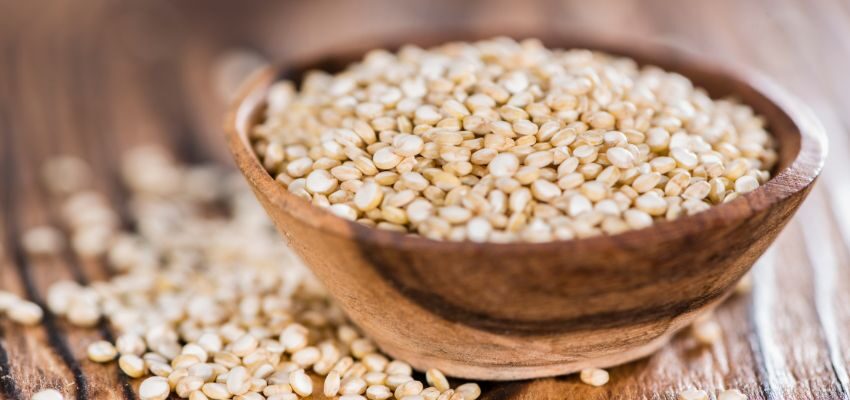
Gluten Content
Both quinoa and oats are naturally gluten-free, making them suitable for those avoiding gluten. However, there are important distinctions to consider:
- Quinoa is completely safe for individuals with gluten intolerance or celiac disease.
- Oats, while naturally gluten-free, are often cross-contaminated during processing. If you have a gluten sensitivity, choose oats labeled as certified gluten-free to ensure safety.
If gluten is a concern, quinoa is the more reliable option unless you specifically opt for certified gluten-free oats.
Cost And Availability
Choosing a versatile, nutritious staple often comes down to cost and availability. Oats and quinoa are both popular but differ in price and accessibility. Here’s a quick guide to help you decide which suits your needs and budget.
- Oats are an affordable and widely accessible option, starting at as low as $0.15 per ounce for basic varieties.
- Quinoa, on the other hand, tends to be more costly, ranging from $0.30 to $0.50 per ounce, particularly for organic or specialty options.
For those on a budget, oats offer a cost-effective and easily accessible choice, making them an ideal option for everyday use.
Taste And Culinary Uses
Oats and quinoa are nutritious staples that add flavor and texture to meals. Whether for breakfast or as a base for savory dishes, they offer endless ways to elevate your cooking. Here’s a quick guide to their taste and uses.
Oats
- Taste: Subtly sweet with a mild flavor.
- Uses: Oats are a breakfast staple that shines in porridge, baked goods, granola, and smoothies. Their versatility makes them a great addition to both sweet and savory dishes.
Quinoa
- Taste: Nutty with a slightly chewy texture reminiscent of brown rice.
- Uses: A highly adaptable grain, quinoa works beautifully as a base for salads, bowls, stir-fries, or a rice alternative in savory meals. It’s equally great in breakfast porridge or pancakes.
Pro Tip: Toast quinoa before cooking to amplify its nutty flavor, and always rinse it thoroughly to remove its naturally bitter coating, known as saponin.
Oats are a perfect choice if you prefer gentle flavors and classic breakfast options. For those seeking variety and a rich, nutty taste, quinoa is the way to go.
Frequently Asked Questions
Oats vs quinoa: Which is better for weight loss?
Both oats and quinoa are excellent choices for weight loss, primarily due to their rich fiber content, which helps keep you feeling full longer. However, oats may have a slight advantage thanks to their higher concentration of soluble fiber, which is particularly effective in promoting satiety and supporting weight management.
Can I combine oats and quinoa?
Absolutely! Combining oats and quinoa creates a nutrient-packed meal with a delightful mix of textures. Try stirring cooked quinoa into your oatmeal porridge or incorporating both into baking recipes for variety. You can enhance your breakfast further by pairing it with a probiotic supplement like Bionaze to support optimal digestion and nutrient absorption.
Which is better for heart health?
Oats take the lead here, thanks to their beta-glucan fiber, which is recognized to lower cholesterol levels. That said, quinoa offers anti-inflammatory benefits that also support cardiovascular health, making both excellent choices.
What is the glycemic index of oats vs quinoa?
Quinoa has a glycemic index (GI) of around 53, placing it in the low-to-moderate range. Oats, on the other hand, range from 55 to 79, depending on the type. Steel-cut oats have the lowest GI among oat varieties, making them the better option for blood sugar management.
Which tastes better: oats or quinoa?
Taste is subjective! When cooked, oats have a mild, creamy flavor and texture, while quinoa offers a nutty taste with a slightly chewy bite. The better option depends on your recipe and personal preferences.
Can you replace oats with quinoa in recipes?
Yes, quinoa can substitute for oats in many dishes, especially porridge or breakfast bowls. However, quinoa’s texture and cooking time differ, so some adjustments may be necessary.
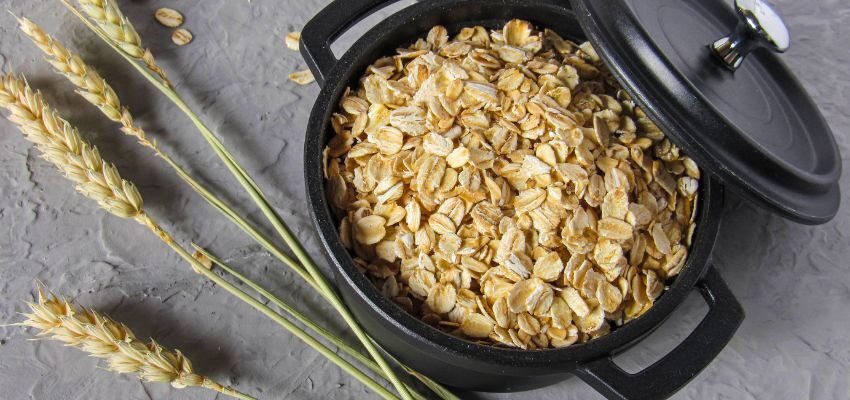
Why Choose Bionaze
Bionaze is a specially crafted probiotic supplement designed to support both sinus health and digestive wellness. Featuring powerful strains like Streptococcus salivarius K12 (BLIS K12) and Bifidobacterium Lactis (Bl-04), it works to promote a balanced gut microbiome and improve nutrient absorption.
Paired with fiber-rich foods like oats and quinoa, Bionaze enhances digestion and bolsters immunity. Whether you’re enjoying oats for heart health or quinoa for its protein-packed benefits, Bionaze is the perfect companion for a balanced, gut-friendly lifestyle.
Oats Vs Quinoa—Why Not Enjoy The Best Of Both?
Oats and quinoa are both nutritional powerhouses, each offering unique benefits. If heart health and affordability are your top priorities, oats are an excellent choice. However, quinoa may be the better fit if you’re looking for a complete protein source or a gluten-free option.
Ultimately, the decision in the oats vs quinoa debate depends on your dietary goals, personal preferences, and budget. Better yet, why not combine them? Their complementary benefits make them a dynamic duo for any meal. Whether starting your day with a filling breakfast or trying creative recipes, oats, and quinoa can support a healthy, balanced lifestyle.
Whether you’re managing blood sugar, improving digestion, or simply looking for a nutrient-dense meal, oats and quinoa offer excellent benefits. For additional digestive support, a targeted probiotic like Bionaze can complement your healthy lifestyle and elevate your gut health.
Benefit From The Latest Advancements In Probiotic Science With Bionaze
Bionaze is a proprietary blend of probiotics proven to promote ear, nose, and throat health, improve digestion, and support your immune system. The active ingredients BLIS K12, and BL-04 are considered among the best probiotics according to science.
Get 25% Off Your First Order when you use BIO25 at checkout!

This Content Has Been Reviewed For Factual Accuracy
This content has undergone thorough fact-checking by our team of internal experts. Learn more about the meticulous editorial standard for our website here.
ADVERTISEMENT

About The Author
Hi, I’m Corinne Grace, a proud nursing graduate from Riverside College with a flair for writing. I specialize in health and wellness topics, using my educational background to weave informative and attention-grabbing articles that appeal to a wide variety of readers. Committed to excellence in writing, I’m always refining my skills to stay in sync with the fast-evolving world of digital media. Whether you’re seeking to understand complex health concepts or looking for relatable advice, I’m here to deliver content that’s accurate and enjoyable to read.

